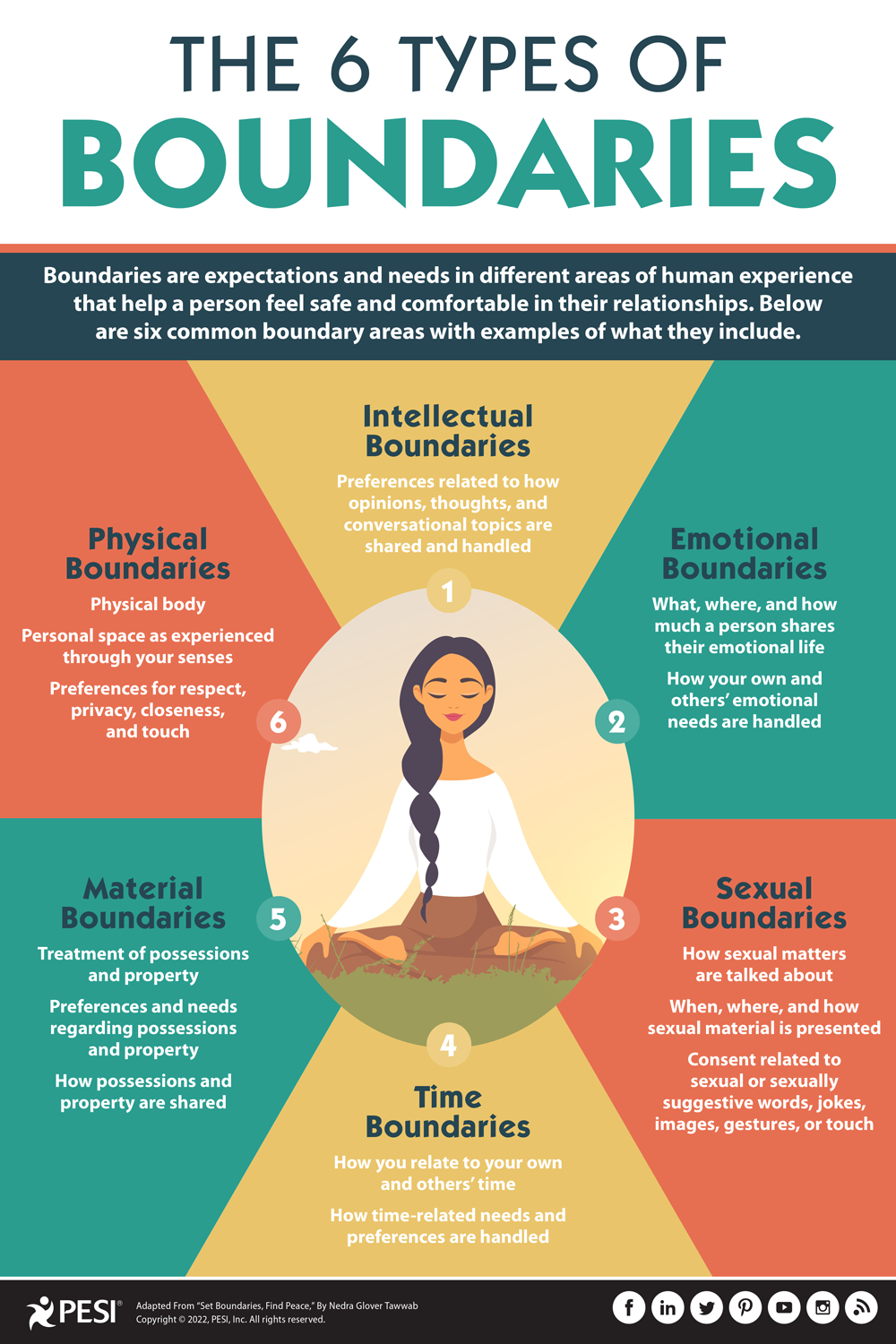

A common obstacle to overcoming illness caused by stress/insomnia/mental health concerns is poor interpersonal boundaries! This is unfortunately a difficult topic of conversation as individuals intertwined in such dynamics fail to see the error in their ways. It’s almost like a blind spot covered by notions of ‘sacrifice’, ‘selflessness’, ‘desire to do good’ or ‘fear of karma’ and so many other false beliefs. It’s not my role as a Naturopathic Doctor to remedy this for you but it’s my job to bring it to your attention and guide you to your counselor/social worker/therapist/mental health coach to help you bring some balance to this very essential determinant of health! 🙂
Here’s a summary of what boundaries are and why they’re essential to health:
Good that comes from setting healthy boundaries. And what happens when you don’t.
Boundaries are the limits we set to protect our personal space, time, and energy. They define how we allow others to treat us and how we respond to others’ behaviors. Boundaries can be physical (personal space and touch), emotional (feelings and thoughts), and time-related (availability and obligations); see the 6 Types of Boundaries infographic below.
- Boundaries and Mental Health:
- According to the American Psychological Association (APA), setting boundaries is essential for mental health. Boundaries help individuals manage their own needs and maintain healthy relationships, reducing the risk of stress and anxiety that can arise from over-commitment and emotional strain (1).
- Dr. Dana Gionta and Dan Guerra, in their book “From Stressed to Centered: A Practical Guide to a Healthier and Happier You,” discuss how setting boundaries can help individuals protect their mental health and prevent burnout (2).
- Physical Health and Boundaries:
- The Mayo Clinic emphasizes that setting boundaries is a key strategy in managing stress and preventing physical health issues. Clear boundaries help reduce the stress that comes from trying to meet unrealistic demands or constantly being available to others (3).
- The University of California, highlights that healthy boundaries can lead to better stress management and, consequently, better physical health. Chronic stress from poor boundaries can lead to issues such as hypertension, headaches, and a weakened immune system (4).
- Work-Life Balance:
- The Harvard Business Review discusses how boundaries in the workplace are crucial for maintaining work-life balance. Without boundaries, employees are more likely to experience burnout and related health issues. Setting limits on work hours and availability helps preserve mental and physical health (5).
- Research published in the Journal of Occupational Health Psychology indicates that employees who establish clear boundaries between work and personal life report lower levels of stress and higher overall well-being (6).
- Relationships and Boundaries:
- According to Dr. Henry Cloud and Dr. John Townsend, authors of the book “Boundaries: When to Say Yes, How to Say No to Take Control of Your Life,” healthy boundaries are essential for maintaining healthy relationships. Poor boundaries can lead to resentment and stress, which negatively impact both mental and physical health (7).
- The National Alliance on Mental Illness (NAMI) states that boundaries in relationships help prevent emotional fatigue and burnout. By clearly defining what is acceptable and what is not, individuals can protect their mental health and maintain healthier relationships (8).

Nedra Glover Tawwab, MSW, LCSW, is a New York Times best-selling author, licensed therapist, and sought-after relationship expert. In this infographic, she shares six types of boundaries straight from her book, Set Boundaries, Find Peace: A Guide to Reclaiming Yourself.
References
- American Psychological Association (APA) – The Importance of Boundaries
- Mayo Clinic – Stress Management: Setting Boundaries
- Greater Good Science Center, UC Berkeley – Setting Boundaries to Reduce Stress
- Harvard Business Review – Work-Life Balance and Boundaries
- Journal of Occupational Health Psychology – Workplace Boundaries and Well-Being
- National Alliance on Mental Illness (NAMI) – Boundaries in Relationships
- Gionta, D., & Guerra, D. – From Stressed to Centered: A Practical Guide to a Healthier and Happier You.
- Cloud, H., & Townsend, J. – Boundaries: When to Say Yes, How to Say No to Take Control of Your Life.

